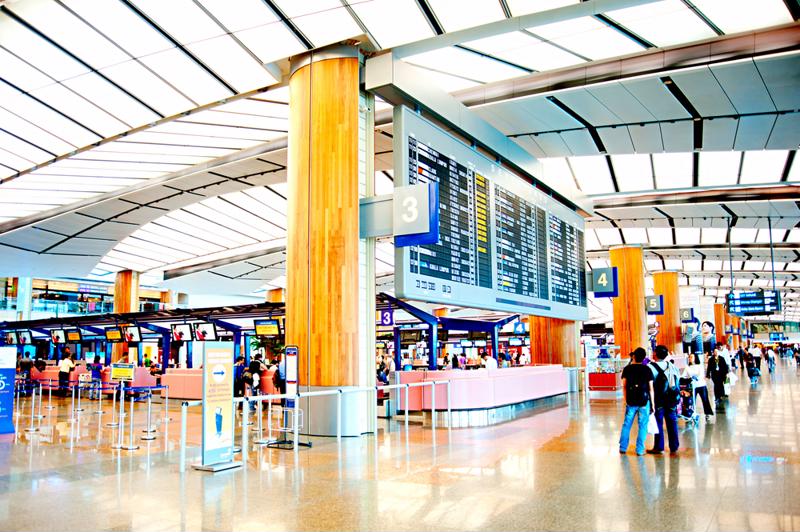Densely populated airports are naturally susceptible to high amounts of water waste. With thousands of travelers using an airport's plumbing facilities each day, even small inefficiencies contribute to a high rate of water waste. That's why the Federal Aviation Administration recently requested that airports across the country prioritize sustainability efforts, according to the Charleston Gazette. One way that airports can reduce energy and water waste is by equipping facilities with tankless water heaters. In addition to providing very efficient performance, tankless water heaters are in line with the sustainability strategies already in the works at multiple airports.
"Aviation administrators can resolve multiple logistical problems with a single tankless upgrade.
Airports already targeting bathrooms for conservation
One major reason that tankless water heaters are such an ideal choice for airports is the fact that several facilities have already targeted bathrooms as a key location for reducing waste. Considering that fixtures like restroom faucets consume large amounts of water and fuel, a new water heater fits seamlessly with many of the facility upgrade plans that are already underway in airports across the country. For example, the Birmingham International Airport in Alabama is currently in the process of upgrading bathrooms with sensor-operated plumbing for greater efficiency. High-end tankless water heaters are equipped with temperature controls accurate to a single degree could help the Birmingham airport move to even greater efficiency. Similarly, the Tampa International Airport targeted water efficiency in the bathroom by installing low-flow fixtures, another efficiency strategy that could be enhanced by a tankless water heater.
 Tankless delivers hot water when travelers need it
Tankless delivers hot water when travelers need itTankless water heaters offer compliance and safety
A large amount of foot traffic moves through an airport on a daily basis, translating to thousands of travelers using airport bathroom faucets. Likewise, airport businesses like food franchises consume plenty of hot water in food preparation. In order to make sure the water heater never generates water that is too hot, both ANSI and OSHA have released compliance rules requiring water heaters to be managed by precise temperature control device. Airports can install tankless water heaters with built-in sensors to reduce waste and keep operations legal.
On-demand performance ensures that hot water is only delivered when needed rather than forcing the airport to depend on pre-heated water stored in a tank, and this design removes much of the uncertainty from the process of keeping water at a safe temperature. By trusting tankless technology to solve an airport's water waste and hot water compliance issues, aviation administrators can resolve multiple logistical problems with a single solution.
Small appliance simplifies the installation process
Another reason that tankless water heaters are an ideal choice for airports performing efficiency renovations is their compact size. Designed to measure a tenth of the size of traditional storage tank water heaters, tankless models can be easily installed almost anywhere. This perk allows airport managers to install tankless water heaters closer to actual points of use, and shrinking the distance between where water is heated and point-of-use helps to reduce energy consumption and water waste. Less energy is lost when hot water doesn't have to travel as far as it did before.

